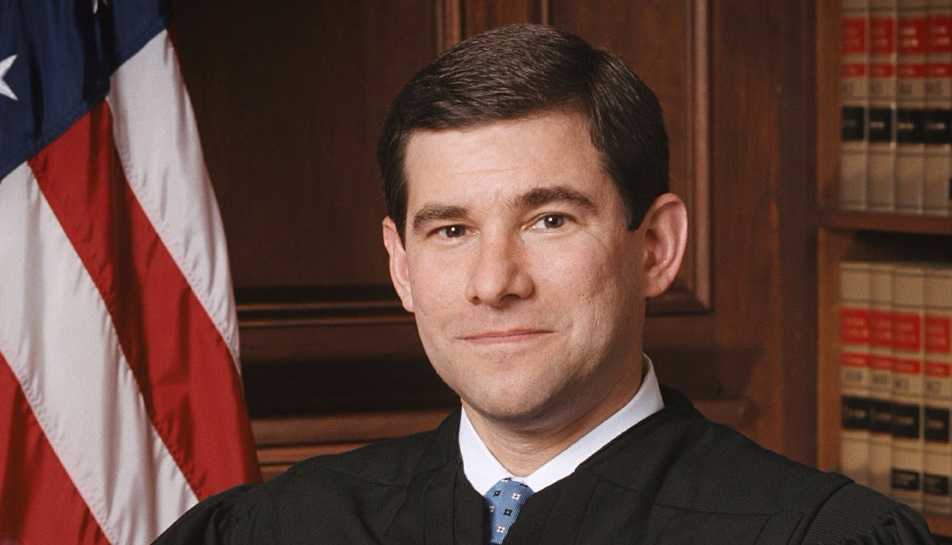 An appeals court judge who is on President-elect Donald Trump’s list of potential nominees for the U.S. Supreme Court delivered a ruling on Tuesday that reversed a lower court’s dismissal of a complaint surrounding the denial of a “gay-straight alliance” club at a Florida middle school.
An appeals court judge who is on President-elect Donald Trump’s list of potential nominees for the U.S. Supreme Court delivered a ruling on Tuesday that reversed a lower court’s dismissal of a complaint surrounding the denial of a “gay-straight alliance” club at a Florida middle school.
11th Circuit Court of Appeals Judge William Pryor, who also prosecuted Alabama Chief Justice Roy Moore in 2003 over his refusal to remove a Ten Commandments monument from the rotunda of the Alabama Supreme Court, wrote the opinion on behalf of his colleagues.
“[T]he complaint that the Board violated the Act is ripe because the Board made a final decision when it rejected the application of the Alliance to form a club,” he wrote. “[T]he complaint also is not moot because the district court can still fashion relief for a violation of the Act. … [T]he Act applies to Carver because it provides courses for high school credit and, under Florida law, these courses constitute ‘secondary education.'”
The matter began in 2011 when Carver Middle School student Bayli Silberstein sought permission to form an alliance, but was denied. In 2013, the American Civil Liberties Union (ACLU) filed suit on behalf of student Hannah Faughnan, who took on the effort after Silberstein moved on to high school.
The Lake County School Board had issued new rules about student clubs that year, which limited permitted groups to “organizations that strengthen and promote critical thinking, business skills, athletic skills, and performing/visual arts.” It declined the request for the alliance because it was unrelated to the school curriculum and did not fall under any of the required categories, but allowed Faughan the opportunity to prove otherwise.
The ACLU asserted that the board’s actions and the new rules violated the federal Equal Access Act, but last year, U.S. District Judge William Terrell Hodges dismissed the case, stating that the law only applies to secondary schools. He also noted that Faughan did not resubmit the application when provided the chance.
On Tuesday, Pryor and his colleagues overturned Hodges’ ruling, stating that as Carver Middle School offers courses good for high school credit, the school would apply under the Equal Access Act. It remanded the case back to the lower court to rule accordingly.
“Because the term in the Equal Access Act that matters is ‘secondary education,’ not ‘secondary school,’ we need not delve into this tangle of provisions,” Pryor wrote on behalf of the panel. “We conclude that ‘secondary education,’ under Florida law, means at least ‘courses through which a person receives high school credit that leads to the award of a high school diploma.'”
“Carver Middle School provides courses through which students can obtain high school credit. The Equal Access Act applies to Carver Middle School,” he continued. “We vacate the order that dismissed the complaint under the Equal Access Act and remand for further proceedings consistent with this opinion.”
As previously reported, Pryor had grilled Alabama Chief Justice Roy Moore in 2003 as he stood trial for refusing to remove the Ten Commandments from the rotunda of the state Supreme Court. His comments to Moore focused more on Moore’s refusal to stop acknowledging God in his official capacity.
“[Y]our understanding is that the federal court ordered that you could not acknowledge God; isn’t that right?” Pryor asked. “And if you resume your duties as chief justice after this proceeding, you will continue to acknowledge God as you have testified that you would today?”
“That’s right,” Moore replied.
“No matter what any other official says?” Pryor asked.
“Absolutely,” Moore stated. “Let me clarify that. Without an acknowledgment of God, I cannot do my duties. I must acknowledge God. It says so in the Constitution of Alabama. It says so in the First Amendment to the United States Constitution. It says so in everything I have read.”
“The only point I am trying to clarify, Mr. Chief Justice, is not why, but only that, in fact, if you do resume your duties as chief justice, you will continue to do that without regard to what any other official says; isn’t that right?” Pryor asked.
As Moore continued to stand his ground, he was ordered by Pryor to be “removed from his position of Supreme Court justice of Alabama.”
Pryor is among those included on Trump’s list of possible Supreme Court picks, along with Steven Colloton, Allison Eid, Thomas Lee, Diane Sykes, Don Willett, and others.
Become a Christian News Network Supporter...


